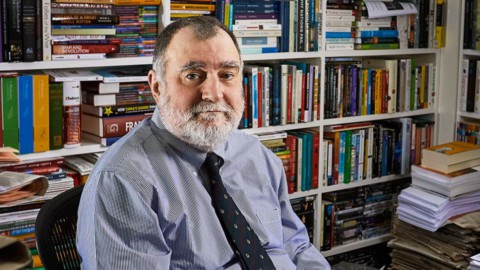Che Hollande non rappresentasse un problema, né tantomeno una minaccia, per la signora Merkel lo si era intuito ben prima che il candidato socialista vincesse il ballottaggio con il suo rivale neogollista. Fatto sta che, a poco più di tre mesi dall’insediamento all’Eliseo di François Hollande, la signora Merkel non ha modificato di una virgola la propria linea sull’Europa, né ha cambiato il suo atteggiamento nei confronti di Parigi. Quindi, piuttosto che di un ritorno di fiamma, sarebbe più appropriato parlare di continuità nella cooperazione franco-tedesca. Se un cambiamento v’è stato, riguarda piuttosto il Presidente francese, che, dopo aver fatto diversi passi indietro sulla necessità di rinegoziare il Fiscal Compact, appena tre giorni fa, ha usato parole di fuoco per Atene, invitandola a rispettare i patti presi con la Troika.
Parole che sono sembrate simili a quelle usate di recente da diversi esponenti della CSU bavarese, la quale, complice l’avvicinarsi delle elezioni nel Land di Monaco, ha iniziato improvvisamente ad insistere per un’uscita della Grecia dall’Eurozona, causando non pochi grattacapi alla Cancelliera e al suo esecutivo in una fase così delicata dell’eurocrisi.
Resta il fatto che, dopo alcune incertezze sulla necessità di procedere sulla via dell’integrazione politica economica e finanziaria, ora Hollande sembra disposto a rientrare nei ranghi, seguendo l’agenda della signora Merkel. Nella giornata di ieri, alla vigilia del vertice di oggi tra la Cancelliera e il Presidente francese, Germania e Francia hanno infatti annunciato la presentazione di un pacchetto di provvedimenti per dare avvio ad un’unione bancaria, rafforzare il coordinamento delle politiche economiche e fiscali e procedere verso la creazione di un’unione politica. Secondo il Ministro degli Esteri francese, Pierre Moscovici, il pacchetto conterrà anche idee per attutire l’impatto della crisi in Spagna e in Grecia (o, come suggeriscono le malelingue, per varare un ennesimo hair-cut). Le proposte saranno pronte entro ottobre, dopo la pubblicazione del nuovo report della Troika sulla Grecia; segno che l’intenzione è comunque quella di rispettare la tabella di marcia fissata nel giugno scorso, incominciando il nuovo anno con un edificio europeo rinnovato e pronto per sopportare nuovi scossoni.
Che cosa concretamente sia destinato ad uscire dal cilindro della signora Merkel e del Presidente francese non è chiaro. E’ ipotizzabile che tra le prime misure vi sia l’implementazione della vigilanza bancaria unificata, l’assicurazione sui depositi europei e nuovi stimoli per la crescita; soltanto in un secondo tempo verranno aggiunti i tasselli riguardanti il governo economico europeo e l’investitura diretta del Presidente della Commissione Europea e del Consiglio europeo. Questi ultimi tasselli richiedono infatti una modifica dei Trattati vigenti e quindi la convocazione di una nuova Convenzione europea, come ha chiarito l’altro giorno Nikolaus Meyer-Landrut, il consigliere per la politica comunitaria della Cancelliera.





